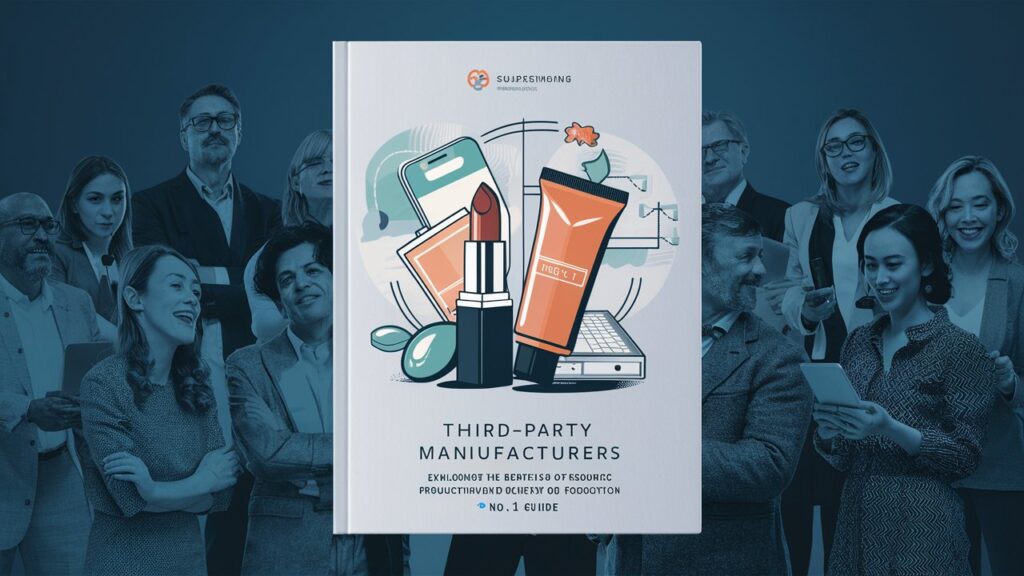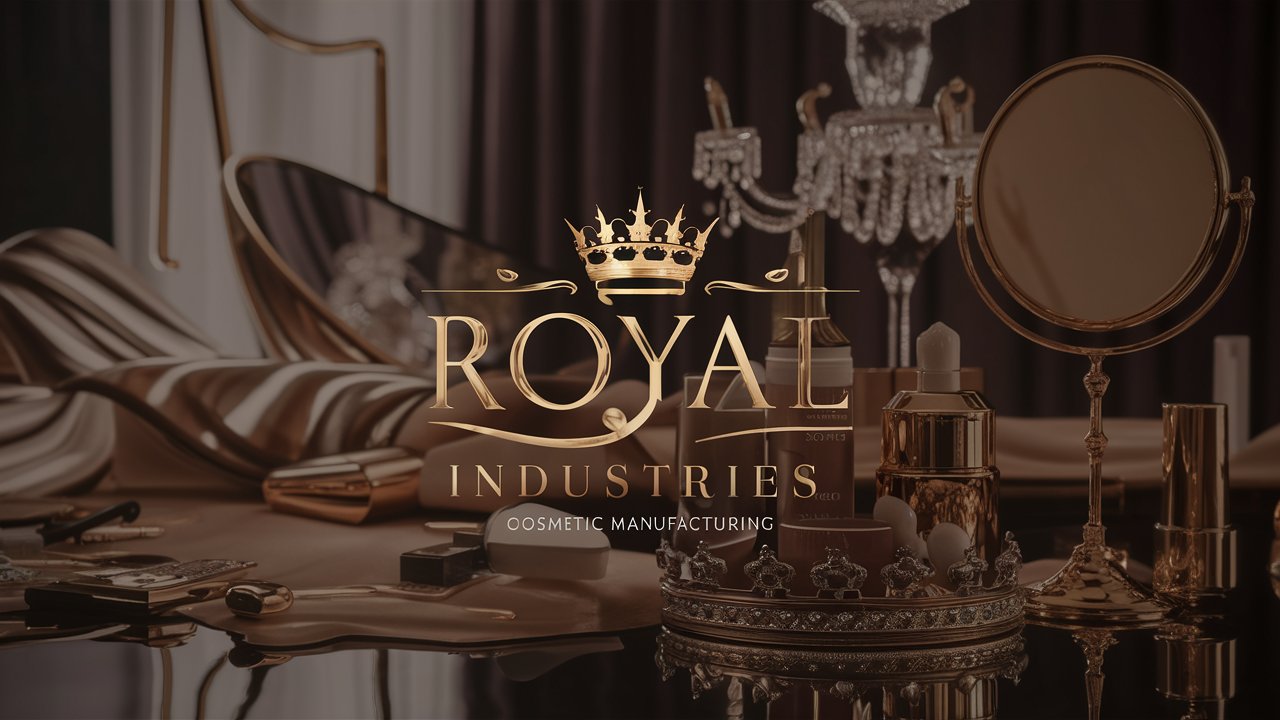Everything from daily grooming to special occasions relies on cosmetics. The usage of cosmetics satisfies the needs of those who are self-conscious about their skin, hair, and face. In recent years, the Indian derma business has grown. The consumer base and range of derma goods increased.
Cosmetics were initially only used by women. Why? Because women are so self-conscious about how they come across to others. Their priority is beauty. The need for self-care is also being recognised by teenagers and men. Men are now using cosmetics for skincare and grooming. This has enhanced cosmetic companies’ opportunities nationwide.
Beauty businesses can take advantage of India’s growing cosmetic industry’s experience, innovation, and cost benefits by outsourcing cosmetic product manufacturers. Brands can boost competitiveness, speed up product creation, and sustain growth in the dynamic beauty market by cooperating with recognised manufacturers.
In this post, we will be exploring the top benefits of outsourcing cosmetics production to third-party manufacturers.

Reasons how outsourcing cosmetic production to third-party manufacturers can transform your business
Outsourcing product manufacture is usually better because it reduces work and costs. Simply put, third-party producers provide the same service. Some benefits of third-party manufacturing in outsourcing cosmetic products to several other companies:
1. A Boost to Effectiveness
This third-party company receives constant requests for high-quality products. Third-party manufacturers are becoming more skilled and competent. Their vast experience in production gives them a lot of information. Choosing a third party to manufacture your cosmetic products will boost manufacturing efficiency.
2. Fast Response Time
A third-party manufacturer’s vast resources allow them to provide rapid turnaround times regardless of the quantity of your order. Cosmetic items third-party manufacturers may be able to expedite orders that require a specific raw ingredient from another manufacturer.
3. Rise in Operational Profits
Outsourcing cosmetics production to a third-party manufacturer may help your business due to the growing demand for high-end cosmetics. The owner gets lower prices with bulk production. High demand will be met at a lower cost by the third-party producer. Additionally, this will boost your profit margins.
4. Cost-Effectiveness:
Third-party manufacturers are able to manufacture cosmetics at a lower cost than the company that produces them in-house. This is due to the fact that third-party manufacturers have the knowledge, equipment, and facilities to generate cosmetics very fast and in great quantities, which makes them operate efficiently.
5. Eye on Quality Control:
Third-party manufacturers have a monitoring unit to make sure that the cosmetics they manufacture are in accordance with industry standards and governmental rules. These standards guarantee that the cosmetics are safe and well-functioning for users.
6. Unmatched Expertise:
Manufacturers working together with third parties have expertise in cosmetics production, which involves ingredient, formulation, packaging and labelling requirements. This makes it possible for them to produce premium cosmetics that satisfy the demands of the market.
7. Flexibility That You Needed:
Third-party manufacturers have the advantage of being able to adjust their production abilities according to the varying needs of their clients. What this means is that they have the capability of producing cosmetics in different forms, quantities, and packaging options depending on the client’s requirements.
8. Third-Party Manufacturers Saves You Time and Money:
You require a well-equipped infrastructure with properly set-up facilities and professional experience to manufacture your planned products. By outsourcing the project to a third-party manufacturer, you only need to offer your idea and design and packaging preferences from start to finish. It cuts manufacturing costs and time significantly.
In this case, you must quote your product’s pricing and create a marketing plan to target buyers. As you will be selling a ready product, you will have to pay extra for promotion, but you will earn easily. Companies could save time by outsourcing cosmetics production to a third-party manufacturer.
9. Focus on Scalability:
Third-party manufacturers will be beneficial to companies that need to scale their cosmetics production fast, without the need to make extra investments into equipment, facilities, and personnel. This is particularly ideal for startups or smaller businesses that may not be able to afford the cost of upscaling their production on their own.
10. Access to new technology:
Third-party companies, as manufacturers, often invest in the latest technology and equipment so as to stay competitive, which makes them a very good option when it comes to obtaining access to new technology that would otherwise be expensive or difficult to acquire.
11. Market Expertise:
Manufacturing firms are professionals who research how the product will perform in the market every day after launch. They research and grasp your business, formulation, and requirements after you outsource the project. A thorough report on the product’s design and functioning will follow. Changes will be suggested if needed. You will also be advised on how to showcase your products for optimum benefit.
12. Bulk and reliable products:
Experts develop products differently from laypeople. You may not know the product’s quality standard or laws. After launch, you may lose money and get client complaints. Instead, invest money in professional manufacturers who can meet all your needs. Third-party manufacturing offers a skilled team to implement your ideas. Outsourcing bulk products makes them readily available when you’re out of stock.
13. Quality Assurance
Reliable third-party cosmetics manufacturers in India ensure the safety and efficacy of their products by applying tight quality control and governmental rules and regulations. Many manufacturers have certifications like ISO and GMP that help ensure consistent quality and adherence to the industry’s highest manufacturing standards.
14. Geographic Reach
India’s geographical location is a big advantage that makes it not only an ideal destination for outsourcing but also helps brands that have a global customer base. Apart from this, working with Indian cosmetics manufacturers also enables the brand to share its cultural aspects and enlighten them, which is necessary to create products that can appeal to any kind of audience.
15. Ethical and Sustainable Practices:
India has abundant natural resources for cosmetics, permitting access to high-quality raw materials for innovative, sustainable products. Working with Indian cosmetics manufacturers can help firms adjust their products to Indian consumers’ needs by providing market information and trends. Third-party cosmetics manufacturers focus on ethical and ecological manufacturing to meet the demand for eco-friendly cosmetics.
All in all, the third-party production of cosmetics has some advantages that can help companies push their products to the market faster, cheaper and higher quality.
Famous Brands Outsource Cosmetic and Beauty Product Manufacturing

What To Do When Working With A Third-Party Manufacturer to Outsource Cosmetic Products?
Start by signing a legally enforceable contract with your contract manufacturer that includes service expectations, timetables, price, and confidentiality.
Cosmetic outsourcing contracts are called master service agreements (MSA). Novice negotiators may ignore issues like litigation state and payment terms, which might pose major issues later.
Consult a lawyer to draft a preferable MSA agreement for your company before hiring a manufacturer. Make sure your MSA protects your IP and trade secrets.
Signing CDAs before sharing product and manufacturing information is customary. Register crucial intellectual property before product manufacturing.
Make sure your contract manufacturer offers GMP and non-GMP services within your internal deadlines. Aseptic manufacturing requires certified clean rooms beyond GMP norms.
Together with the manufacturer, decide where and how to source your ingredients. Certified organic, gluten-free, vegan, etc., cosmetics require raw material sourcing. The MSA should specify raw material sourcing (including location) before work begins.
For cosmetic product formulation creation, tell your manufacturer which substances to utilise and which to eliminate. You can discuss the cosmetic formulation’s texture, colour, thickness, and smell beforehand and keep benchmark formulation samples for further comparison.
Other cosmetic formulation considerations include batch size and delivery times. Most cosmetic goods need safety testing, like cosmetic stability testing. Coordinate product safety testing deadlines with your contract manufacturer or testing companies.
Cosmetic contract manufacturers can help you choose a safety test to pass regulatory requirements. Cosmetic formulation and packaging (filling and stability testing) may require contract manufacturing from multiple companies.
Conclusion
All things considered, contract manufacturing is a type of outsourcing in which a company hires a third-party manufacturing company to make things that they can’t make in-house. For startups and small businesses, contract manufacturing can offer many benefits. These benefits include cost reductions, time savings, access to advanced technical talents outside a company’s expertise, and GMP product manufacture. Since FDA restrictions affect cosmetic wipes, contract production and testing are beneficial for firms. When hiring a cosmetics contract manufacturer, make sure the master services agreement covers intellectual property, quality, timeline, formulation development, and packaging.
FAQs
Does outsourcing cosmetics to third-party manufacturers make sense?
Hiring a third-party producer to make high-quality cosmetics without investing in equipment and staff can be a game changer for your beauty brand. This technique gives companies several advantages without compromising quality, innovation, or cost.
How does outsourcing cosmetic products to third-party manufacturers help you?
Outsourcing cosmetic manufacturing can transform your beauty brand by providing cost savings, specialised expertise, flexibility, scalability, and efficiency. Understanding the skincare manufacturing process and adopting quality control procedures ensures high-quality products. Successful outsourcing relationships involve good communication and regulatory compliance. Outsourcing allows organisations to innovate, expand production alternatives, and launch goods faster. Outsourcing cosmetic manufacturing can boost growth, profitability, and competitiveness.
What should I look for when choosing third-party manufacturers?
Brands might consider many factors when choosing third-party cosmetics makers. Third-party cosmetic manufacturers should be trusted in the market. Second, they must sell bulk. Brands must also verify that the cosmetic third-party manufacturer can handle volume production. Third-party cosmetics makers should also meet varied needs. Choose those that accept bespoke formulae and offer customised packaging.
Which factors have helped Indian third-party cosmetic manufacturers expand?
Indian Cosmetic Manufacturing Companies have grown due to key variables that have shaped the cosmetics sector. Third-Party Cosmetic Manufacturers in India thrive due to these factors. The sector has grown because of India’s skilled labour and cosmetic formulation specialists. These factors show Cosmetic Manufacturing Companies in India’s huge growth potential. Creating a lively and competitive cosmetics and personal care market.
- Increasing Consumer Awareness
- Rapidly changing beauty trends
- Burgeoning middle class with discretionary cash
- Internet and media exposure to global beauty trends
Discover more skincare secrets on our blog! Click here to read now.






